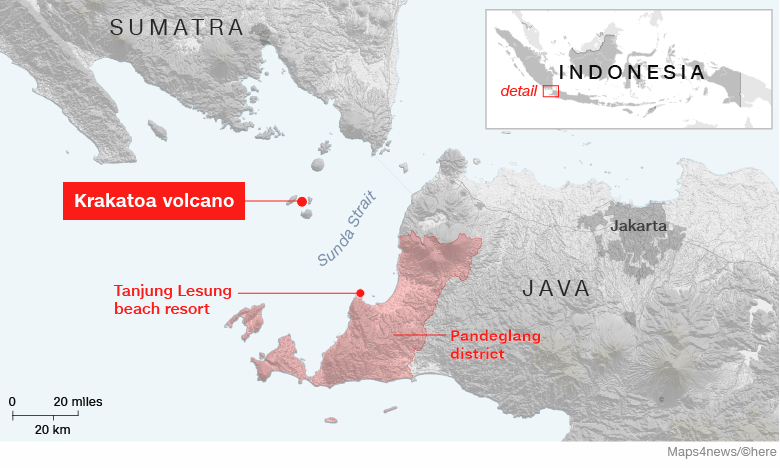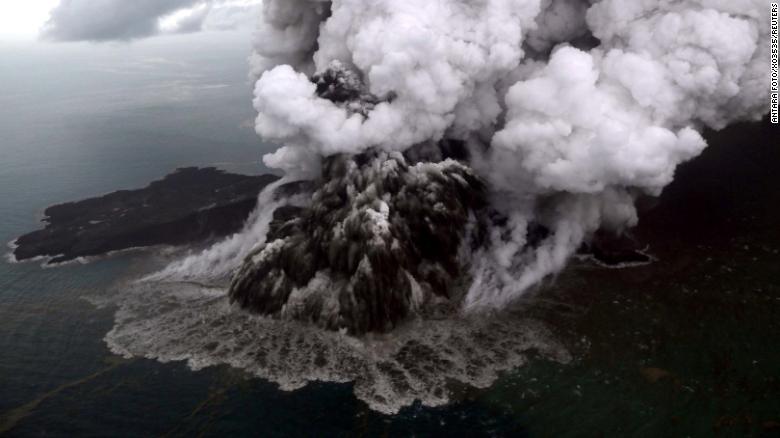Eyewitnesses described fleeing for their lives as beachfront homes were swept away in the churning sea.
The band's bass player and manager were killed, lead singer Riefian Fajarsyah said in a tearful video posted on Instagram. Three other members of Seventeen and Fajarsyah's wife -- whose birthday is Sunday -- are still missing, he said.
According to Sutopo Purwo Nugroho, head of public relations at Indonesia's National Disaster Mitigation Agency, 843 people were injured and another 28 are unaccounted for.
At least 558 houses were destroyed, while nine hotels, 60 restaurants and 350 boats were heavily damaged, an indication of the tsunami's impact on residential and tourist areas.
As of midday Sunday, no foreigners had been reported killed or injured.

Tsunami caused by underwater landslides
The tsunami is believed to have been triggered when the Krakatoa volcano erupted in the Sunda Strait between the islands of Java and Sumatra, prompting a series of underwater landslides, according to Indonesia's Meteorology, Climatology and Geological Agency (BMKG).
When the displaced rock shifted beneath the water's surface, it "pushed up" the water on top of it, CNN Meteorologist Allison Chinchar said, and generated the tsunami.
Krakatoa sits between the islands of Java and Sumatra.
The tsunami's impacts were compounded by a tidal wave caused by the full moon, BMKG said in a news release.
Krakatoa is known for its 1883 eruption -- one of the deadliest in recorded history -- that killed more than 36,000 people.
Despite the devastating 2004 Boxing Day tsunami that killed hundreds of thousands of people, Indonesia lacks proper equipment to warn of an incoming tsunami threat.

"We need a multi-hazard early warning system," said Nugroho. "And we need lots of it."
Nugroho pointed out tsunamis are faster and less predictable than tidal waves, which are caused by atmospheric conditions.
"We used to know that a tsunami happens after an earthquake. There was no quake last night," he said, referring to the sub-aquatic landslides. "That is why there was no warning."
